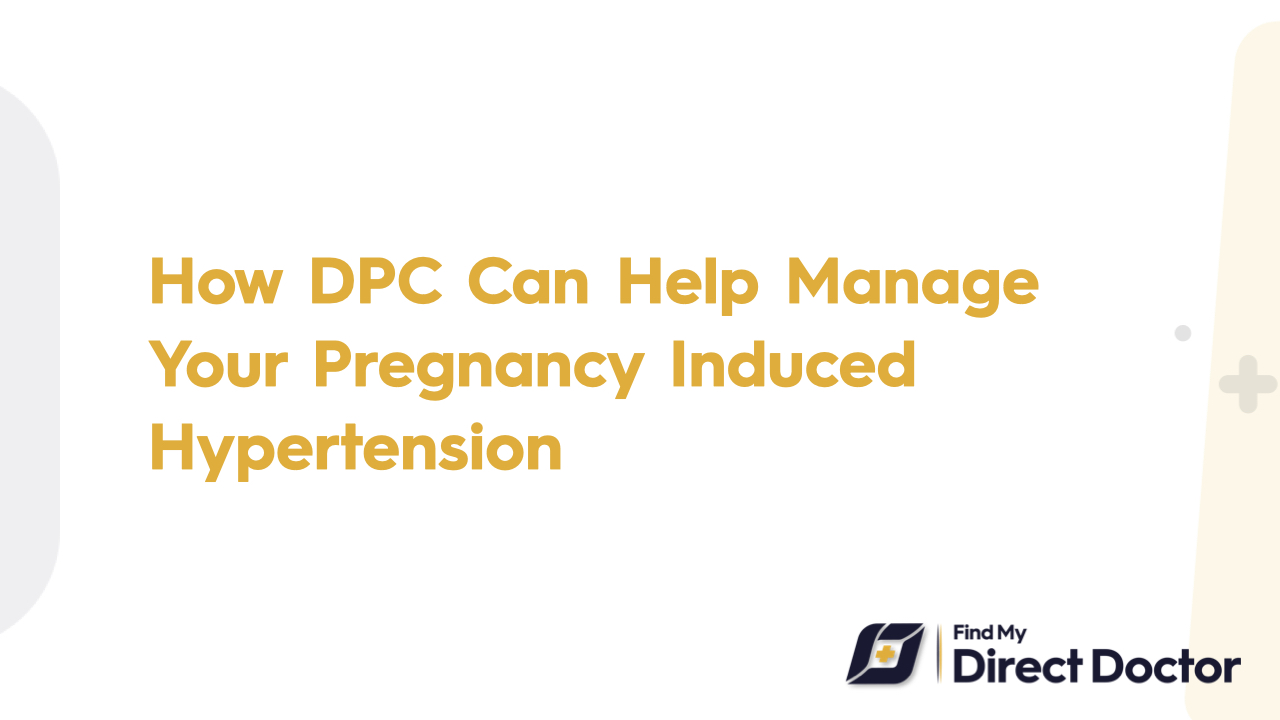



High blood pressure that appears after 20 weeks of pregnancy in women who previously had normal blood pressure is called pregnancy-induced hypertension, or gestational hypertension. Symptoms may include upper abdomen pain, visual abnormalities, chronic headaches, and facial and hand edema. Untreated, it can result in complications like preeclampsia, which puts the mother and the child at risk. A healthy pregnancy depends on early detection and treatment.

By emphasizing ongoing and easily accessible care, Direct Primary Care offers a customized strategy for treating pregnancy-induced hypertension. DPC doctors closely monitor blood pressure levels, evaluate symptoms, and modify treatment programs as necessary during routine visits. Additionally, this care paradigm guarantees early problem detection and facilitates easy cooperation with obstetric specialists as necessary. DPC's proactive approach aids in efficiently controlling the illness while attending to each patient's unique requirements.
Longer consultation times and improved contact with healthcare professionals are just two of the many advantages that DPC provides to individuals with pregnancy-induced hypertension. This guarantees a comprehensive comprehension of the ailment and the creation of a comprehensive treatment strategy. DPC services' accessibility lowers the chance of problems by enabling prompt response to any changes in symptoms. Throughout their pregnancy, pregnant moms feel empowered and supported thanks to the model's emphasis on patient-centered treatment.
By customizing management regimens to meet each pregnant woman's specific health needs, DPC places an emphasis on individualized treatment. When required, healthcare professionals may suggest medication in addition to lifestyle changes like dietary changes and stress-reduction strategies. In order to handle issues quickly and ensure the health of both the mother and the fetus, regular monitoring and open communication are essential. A supportive foundation for properly controlling pregnancy-induced hypertension is created by this tailored approach, which cultivates a trustworthy connection between the patient and the clinician.